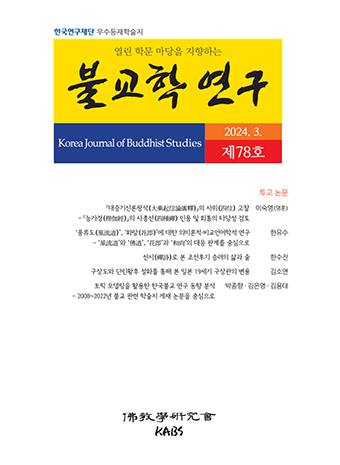Abstract
References
Sorry, not available.
Click the PDF button.
Information
In this paper I try to examine the meaning of life and desire in Buddhism in order to search a new foundation of Buddhist Ecology. For that purpose I criticize the optimistic and popular tendency of Buddhist Ecology today, which interprets the doctrine of interdependence(緣起) and the doctrine of Non-ego(無我) of Buddhism in accordance with the logic of System Theory in natural science.In opposition to that tendency I try to show the contrast between System Theory and Buddhism in the ontological understanding of life and nature. The ontological point of view of System Theory is materialism, while that of Buddhism is idealism and spiritualism. According to the Buddhism our physical world is not objective real world, which is independent from human mind. It's the result of karma of living beings.In showing that contrast I argue that the ecological problems are not solvable only through the doctrine of interdependence and the doctrine of Non-ego, because they are the concepts, which only describe the phenomenal differences of beings but do not suggest the way to solve the unequality, which is caused by those phenomenal differences. Instead of interdependence, I suggest, Buddha-Nature(佛性) and True-Being(眞如) should be the key words for the foundation of Buddhist Ecology, because only through them it is possible to establish the equality of all living beings.
Click the PDF button.
- Publisher :Korean Association of Buddhist Studies
- Publisher(Ko) :불교학연구회
- Journal Title :Korea Journal of Buddhist Studies
- Journal Title(Ko) :불교학연구
- Volume : 11
- No :0
- Pages :366~395


 Korea Journal of Buddhist Studies
Korea Journal of Buddhist Studies






